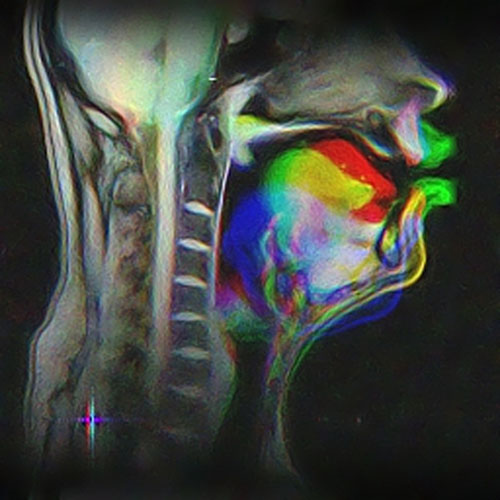The goal of our speech motor control work is to identify organizing principles underlying speech coordination. To this end we study the kinematics of lip, tongue, jaw and vocal fold movements and the muscle activity involve in producing these movements.
Recently we have focused on how auditory feedback influences speech motor control. When you speak, the sound of your own voice influences articulation and our studies use custom signal processing techniques to manipulate the feedback in real time.
-
Purcell, D. & Munhall, K.G. (2006) Adaptive control of vowel formant frequency: Evidence from real-time formant manipulation. Journal of the Acoustical Society of America. 120, 966-977.
-
Purcell, D. & Munhall, K.G. (2006) Compensation following real-time manipulation of formants in isolated vowels. Journal of the Acoustical Society of America, 119, 2288-2297.
-
Jones, J.A., & Munhall, K.G. (2005). Remapping auditory-motor representations in voice production. Current Biology, 15, 1768-1772.
-
Jones, J.A. & Munhall, K.G. (2003). Learning to produce speech with an altered vocal tract: the role of auditory feedback. Journal of the Acoustical Society of America. 113, 532-543.
-
Jones, J. A. & Munhall, K. G. (2002). Adaptation of fundamental frequency production under conditions of altered auditory feedback. Journal of Phonetics, 30, 303-320.

 Department of Psychology
Department of Psychology